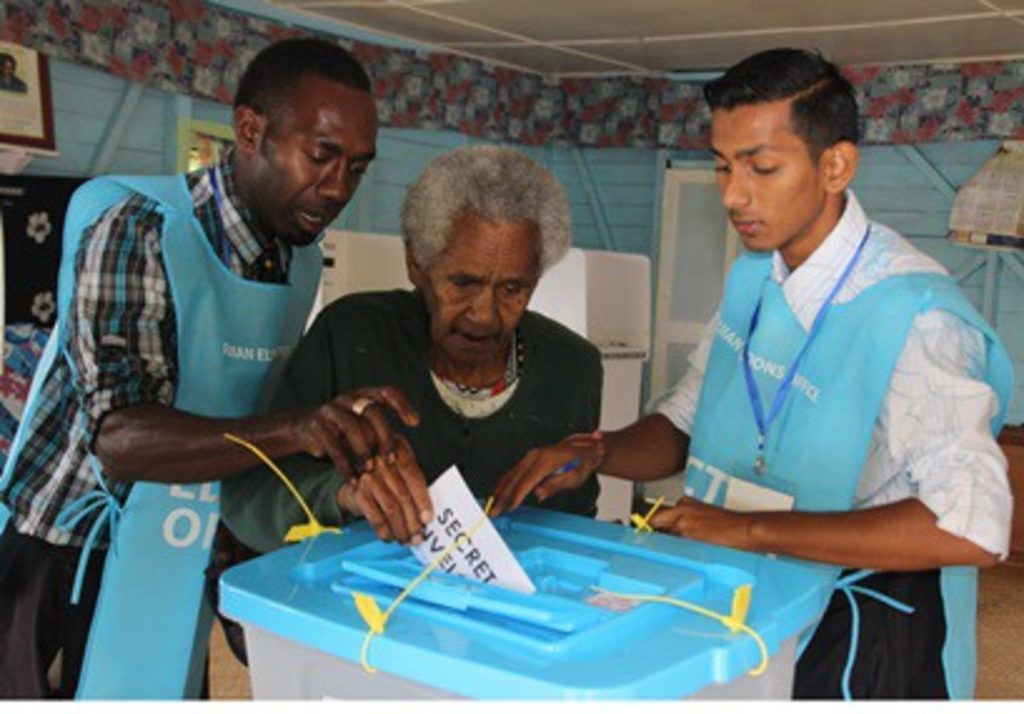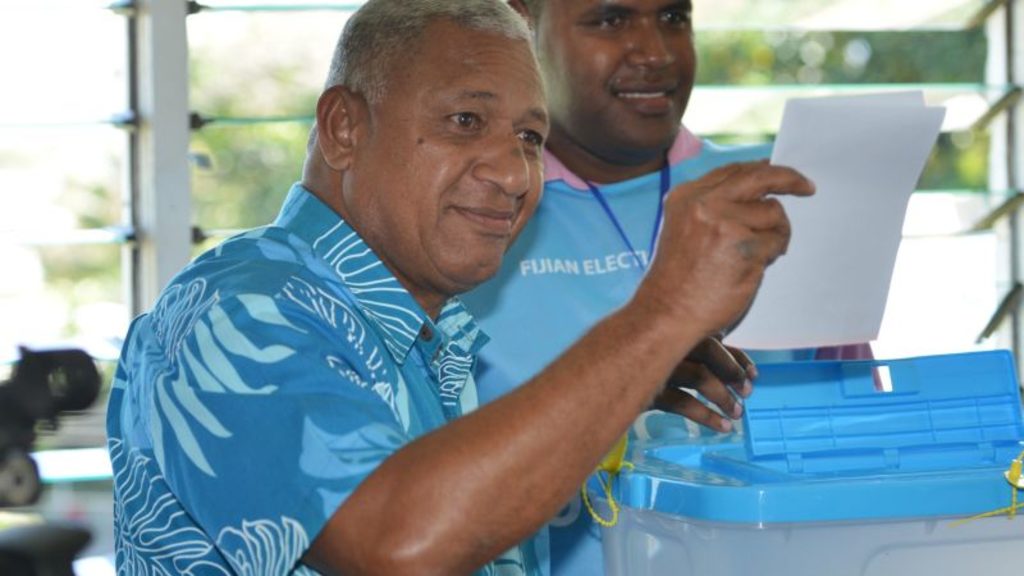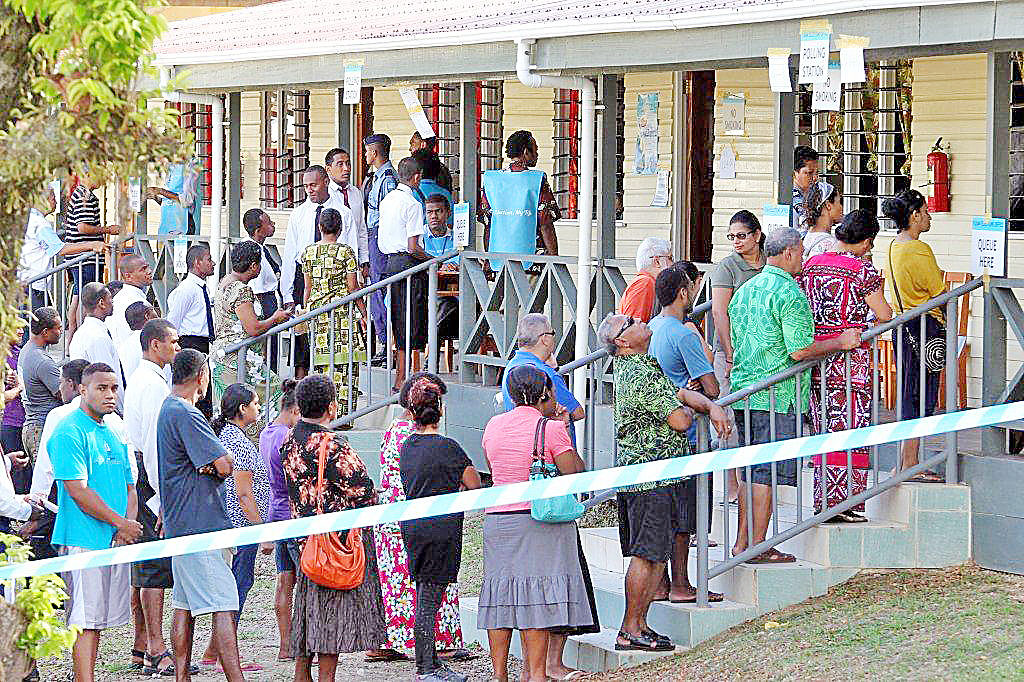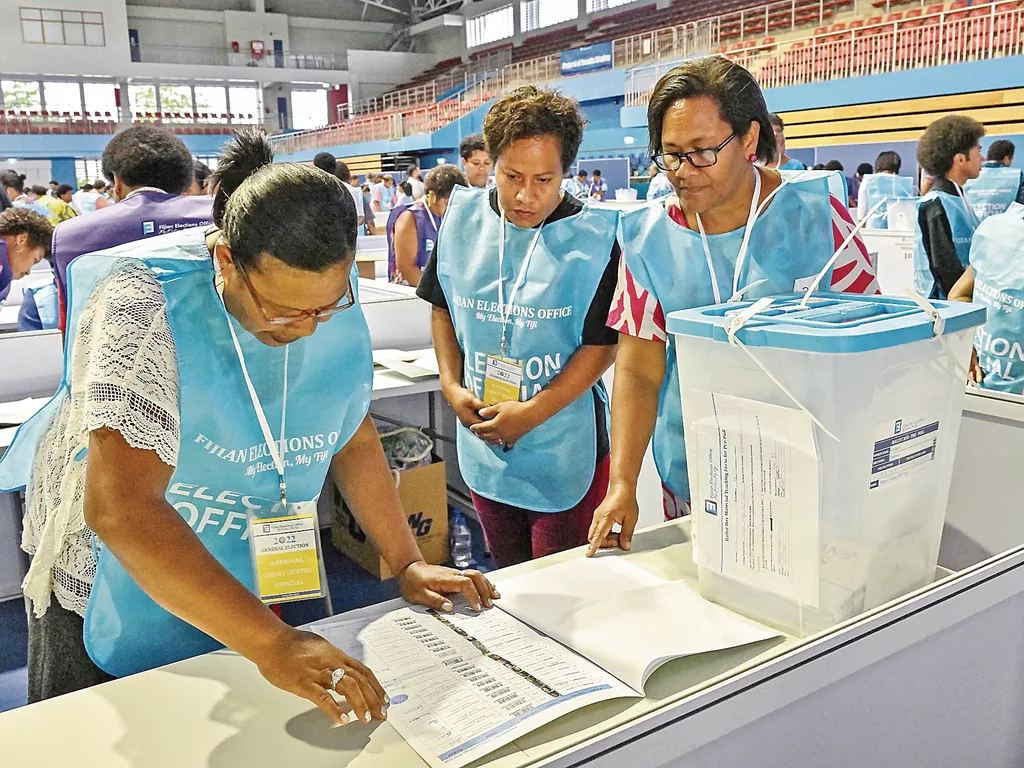As Fiji braces for possible electoral reforms ahead of the 2026 General Election, a new Voter Perception Survey 2024 by the Fijian Elections Office (FEO) has shed fresh light on what truly motivates people to cast their votes.
The findings come at a critical time, as the Coalition Government led by Prime Minister Sitiveni Rabuka has commissioned a wide-ranging electoral review through the Electoral Reform Commission, chaired by former Chief Justice Daniel Fatiaki.
While the Supreme Court also deliberates on the legality of the 2013 Constitution, a ruling that could profoundly reshape the electoral framework, the FEO survey offers revealing insights into the current state of voter engagement in Fiji.
Duty over confidence
Contrary to assumptions that confidence in the integrity of the electoral system is the main driver of voter turnout, the survey found otherwise.
The data suggests that voter confidence alone is not a strong predictor of participation.
Instead, a sense of civic duty—the belief that voting is a personal responsibility, was a much stronger motivator. Those who cited civic responsibility as their reason for registering were significantly more likely to vote, with turnout rising from 59 per cent to 76 per cent among this group.
These findings challenge traditional election outreach strategies that focus on reassuring voters about process integrity. It suggests that what truly drives voter turnout is a deep-rooted sense of obligation to participate in the democratic process.
Low turnout among overseas voters
One of the more paradoxical findings in the report relates to Fijians living overseas.
Although this group reported the highest levels of civic duty, their turnout was the lowest, just 6.9 per cent, compared to 69 per cent for domestic voters.
The report attributes this to logistical challenges: voting from abroad typically involves greater effort, more steps, and often limited access to information.
Yet, those who did vote from overseas likely felt a particularly strong sense of national responsibility.
The FEO notes that addressing these barriers is essential if Fiji wants to increase overseas participation. Simplifying postal voting procedures, improving communication channels, and enhancing awareness about overseas voting options are clear steps forward.
Turaga ni koro, a vital link to
information
In rural and remote areas, traditional leaders such as turaga ni koro and other community heads continue to play a vital role in disseminating pre-polling information.
The survey found that among the 8.9 per cent of respondents who engaged in pre-polling, community leaders were a key source of information (5.4 per cent), slightly behind FEO-led awareness campaigns (6.0 per cent).
This highlights the importance of leveraging trusted local figures to ensure that electoral information reaches all corners of the country, especially where infrastructure and internet access are limited.
Accessibility still a barrier
The report also underscores a persistent challenge, which is that accessibility issues remain a key barrier to voting, especially in rural or working populations.
Many respondents cited lack of transport, work commitments, and logistical issues as reasons for being unable to vote, despite having the intention and desire to do so.
Meanwhile, 11.5 per cent of survey participants did not vote in 2022 because they were not registered, with the majority of this group being aged 18–20 and likely ineligible at the time of the last general election. This points to the importance of targeted youth registration efforts in the lead-up to 2026.
Postal voting, room to grow
Only 1.9 per cent of voters used postal voting, despite widespread acknowledgment of its necessity, especially among overseas voters or those facing mobility challenges. The limited use of this option suggests that more work is needed to raise awareness and simplify the application process.
Most postal voters were informed through official FEO campaigns (1.5 per cent), while social media played a much smaller role (0.7 per cent), indicating a gap in digital outreach. As more young and urban voters move online, investments in digital voter education and mobile accessibility may prove to be essential.
Strategic implications for reform
The findings from the 2024 Voter Perception Survey come as the Electoral Reform Commission continues its work to review Fiji’s voting laws, with many expecting significant changes to be proposed.
At the same time, the Supreme Court’s review of the 2013 Constitution’s legality could trigger broader constitutional shifts, possibly influencing how elections are conducted.
In this context, the FEO’s data presents a roadmap for strategic voter engagement in the years ahead.
Campaigns that centre on civic responsibility and social contribution, rather than institutional trust alone, are more likely to resonate with the public. Moreover, enhancing accessibility and simplifying voting procedures, particularly for overseas voters and those in hard-to-reach areas, could significantly lift turnout.
Deeper research
While the survey has provided valuable insights, the FEO acknowledges that more work is needed to fully understand the complex social motivations behind voting.
Future research is expected to delve into altruism, community belonging, and the desire for social recognition, factors that may hold the key to boosting long-term electoral participation.
As Fiji prepares for potential constitutional and electoral shifts, these survey findings remind policymakers that systems alone do not inspire votes—citizenship and civic values do.
Looking ahead to 2026
With just under two years to go before the next general election, the challenge now lies in transforming these insights into practical policy changes and outreach efforts.
Whether through reforms recommended by the Electoral Commission or rulings from the Supreme Court, Fiji’s democratic architecture is likely to evolve.
In the meantime, the FEO’s findings suggest a clear path forward, nurture a culture of civic duty, remove logistical barriers, empower community voices, and build an electoral system that reflects both the needs and values of the Fijian people.
Polling venue officials assist a senior citizen cast her vote during the 2014 General Elections. Picture: SUPPLIED

Former Prime Minister Voreqe Bainimarama casts his vote during the 2014 polls. Picture: CNN

Voters queue outside a polling venue during the 2014 general election. Picture: FT FILE



